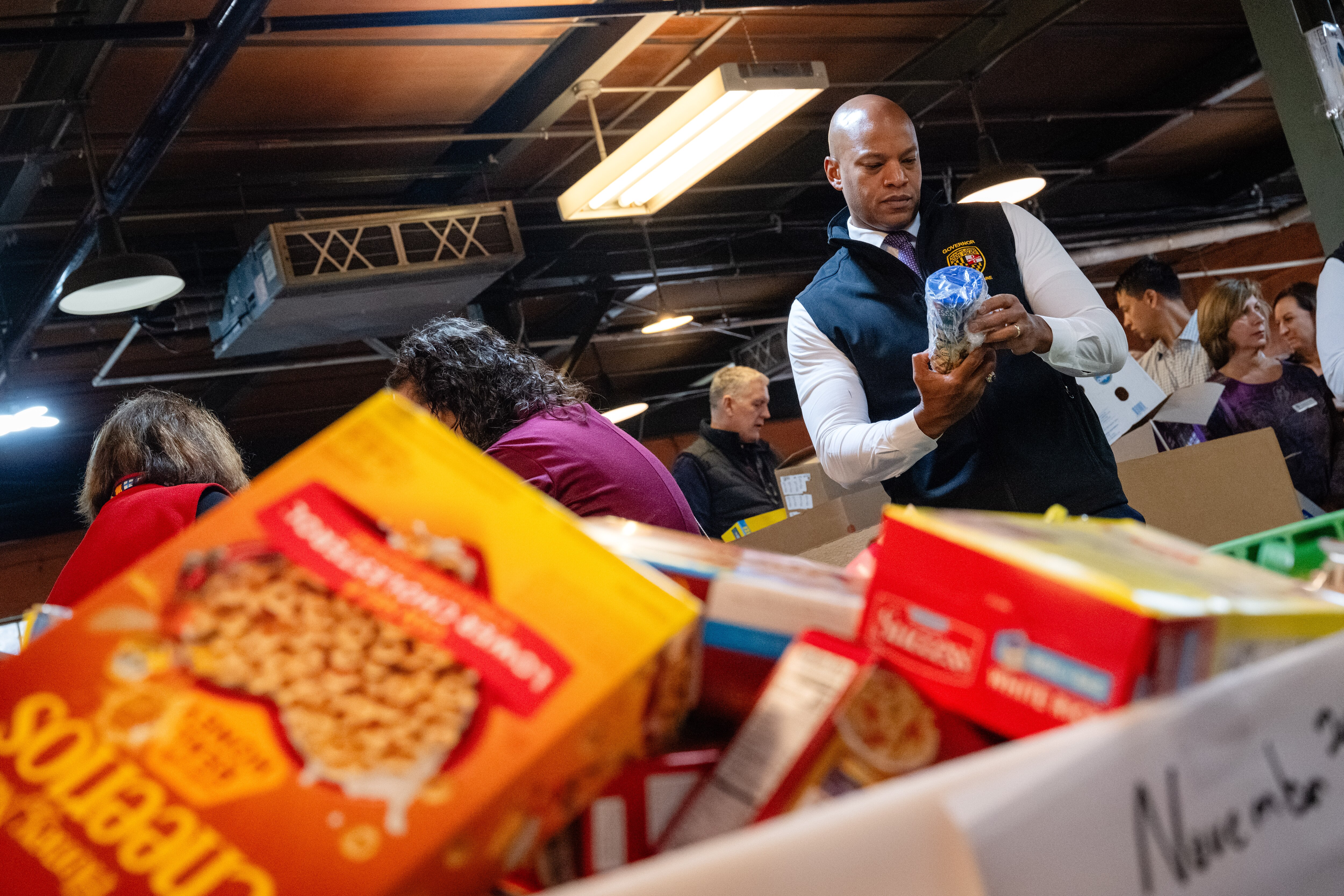CURRENT EDITION: baltimore (none)🔄 Loading BlueConic...EDITION HISTORY: No changes tracked
🔵 BlueConic: ___🔗 Query: ___✏️ Composer: ___
Maryland to sue Trump administration for blocking Greenbelt FBI headquarters project
A press conference is scheduled for Thursday afternoon in Prince George’s County. It will include the attorney general, the governor, the county executive and state and federal lawmakers.
Paul Pinsky, head of Maryland Energy Administration, retires
After nearly 40 years of pushing for progressive change on environmental and educational policy, Maryland Energy Administration leader Paul Pinsky is retiring from public service.
Moore keeps redistricting push alive in Maryland amid national map fights
“My commitment has been clear from day one — we will explore every avenue possible to make sure Maryland has fair and representative maps,” Moore said in a statement Tuesday.
Moore: Maryland will ensure full SNAP benefits in November
More than 680,000 Marylanders — nearly 40% of them children — receive SNAP benefits each month to help keep food on the table. The average benefit is $180.
Blackmail charges make Dalya Attar the latest chapter of Maryland political scandal
Analyzing blackmail allegations against Maryland state Sen. Dalya Attar.
Maryland lawmakers push Moore to use emergency funds for food benefits
Maryland state lawmakers pressed Gov. Wes Moore and his administration to keep food benefits intact during the federal government shutdown — even if that means tapping the state’s Rainy Day Fund.
Moore sends $10M to help food banks pressured by federal furloughs, loss of SNAP
Food banks and pantries say they already are seeing unprecedented demand for help. They expect demand to increase with the loss of federal food aid.
Maryland won’t join Trump-inspired redistricting push, state Senate leader says
Maryland Senate President Bill Ferguson wrote of redistricting: “The legal risks are too high, the timeline for action is too dangerous, the downside risk to Democrats is catastrophic, and the certainty of our existing map would be undermined.”
Could Maryland tap its ‘rainy day’ reserves to fund SNAP?
Maryland has more than $2 billion in a Rainy Day Fund that’s been tapped before for emergencies like the Key Bridge collapse and the coronavirus pandemic.
Maryland lawmakers will discuss possibility of extending federal food aid
With federal food assistance set to dry up at the end of the month, Maryland lawmakers are convening a hearing to see what, if anything, they can do to help.
Moore loses another cabinet secretary as service chief Paul Monteiro exits
The state’s first secretary of service and civic innovation is leaving his post, Maryland Gov. Wes Moore announced Monday.
Moore won’t use state funds to replace federal food aid during shutdown
One in nine Marylanders puts food on the table with the help of SNAP, but with benefits soon running out as a federal government shutdown drags on, Gov. Wes Moore is not planning to tap state money to keep the program running.
National Democrats push a new poll showing Marylanders support redistricting
Maryland has not yet entered the national redistricting fray, but a poll commissioned by the Democratic Congressional Campaign Committee could put pressure on leaders to try to eke out one more Democratic member of Congress.
680,000 Marylanders could lose food assistance next week, officials warn
Maryland’s state government has $3.5 billion in “fully liquid cash” available for emergency needs, but the governor has not indicated whether he would use the money for SNAP.
Maryland finally moving to more secure benefits cards after delays and disputes
Lawmakers mandated that the state issue cards with chip technology to Marylanders who receive food assistance and cash assistance, but the implementation has been stalled amid legal challenges.
Furloughed federal workers can ride MARC and commuter buses for free, Moore says
The Maryland Transit Administration is offering free rides on MARC trains and commuter buses during the federal government shutdown.
Del. Charles Otto, Eastern Shore Republican, dies
Maryland Del. Charles Otto, who represented the Eastern Shore in Annapolis for nearly 15 years, has died, officials announced Friday.
Banner poll: 54% approval for Moore, but voters can’t identify his accomplishments
While a majority of Marylanders approve of the job Gov. Wes Moore is doing, they struggle to identify his achievements and offer only soft support, according to a new statewide poll from The Banner.
Maryland Democrats want a candidate in every 2026 race
An initiative dubbed “Contest Every Seat” aims to fill ballots across the state with Democratic candidates for the House of Delegates, state Senate, county councils and county commissions.
Moore picks longtime Dem strategist to head budget office
Weissmann was chief of staff for two Democratic Senate presidents: current President Bill Ferguson and the late, longtime President Thomas V. Mike Miller, from Prince George’s County.














